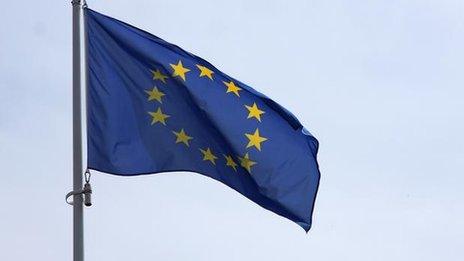Britain urges EU to change free migration rules
- Published
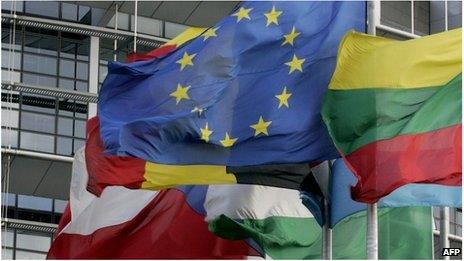
Some commentators have raised fears of a surge of immigration after 1 January
Britain wants to change the rules governing the free movement of people across the EU, Home Secretary Theresa May has told European ministers.
Mrs May spoke in Brussels, ahead of the lifting of movement controls on Bulgarians and Romanians.
She said free access to labour markets must not be allowed to lead to "mass migration".
However, some countries have already vowed to defend what they regard as a fundamental EU principle.
Arriving for talks in Brussels, EU Justice Commissioner Viviane Reding said "our EU rules are good and they are here to stay - member states need to apply them to tackle abuse.
"Don't blame the Commission or EU rules for national choices and national regulatory systems... If we start negotiating freedoms we will end up with having none," she told reporters.
Mrs May argued that problems caused by free movement must be addressed and the rules should be changed.
In a statement she questioned why national governments should not be be allowed to impose a cap on numbers if European immigration reached certain thresholds.
She said she planned to make clear at the Brussels meeting "that I believe we need to change the way free movement rules work".
She added: "First, for future accession treaties, we must be able to slow full access to each other's labour markets until we can be sure it will not lead to mass migration.
"Second, looking ahead, we must seize the opportunity presented by the prime minister's plan to reform the EU and address the problems caused by free movement.
"It is right that the national governments of the EU reform the way free movement rules work."
Mrs May was also expected to propose requiring new member states to reach a certain level of income or economic output per head before full access to free movement rights is allowed.
Welfare systems
The debate precedes the lifting of transitional controls on Romanians and Bulgarians - from 1 January there will be no restrictions on them working anywhere in the EU.
BBC Europe correspondent Chris Morris said there was sympathy for Britain's demand that abuse of welfare systems should not be permitted - because other countries shared the same concern.
But there was little support at a political level for a fundamental reassessment of the idea of free movement, our correspondent added.
One diplomat from an eastern European member state said no one would accept some countries being treated as second-class EU citizens because a free market in goods and services also had to be a free market for labour.
David Cameron has suggested that citizens from other EU countries will not be able to claim out-of-work benefits for the first three months in the UK and will not be able to extend claims beyond six months if they have no genuine prospect of work.
Laszlo Andor, a European commissioner, angered Mr Cameron by commenting that the UK was at risk of becoming a "nasty" country if it curbed benefits and sought to limit freedom of movement by EU nationals.
- Published4 December 2013
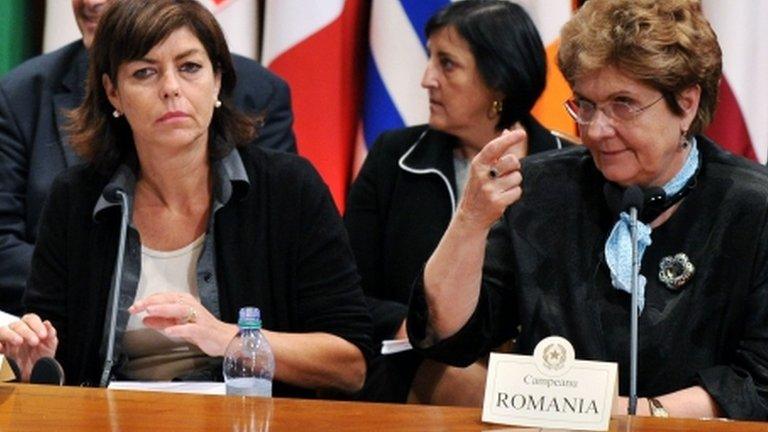
- Published29 November 2013
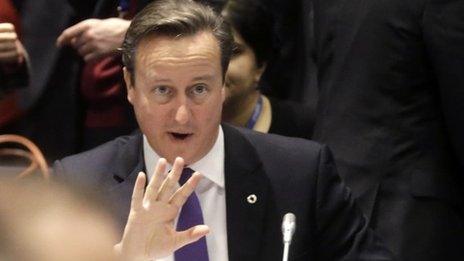
- Published3 November 2014

- Published28 November 2013
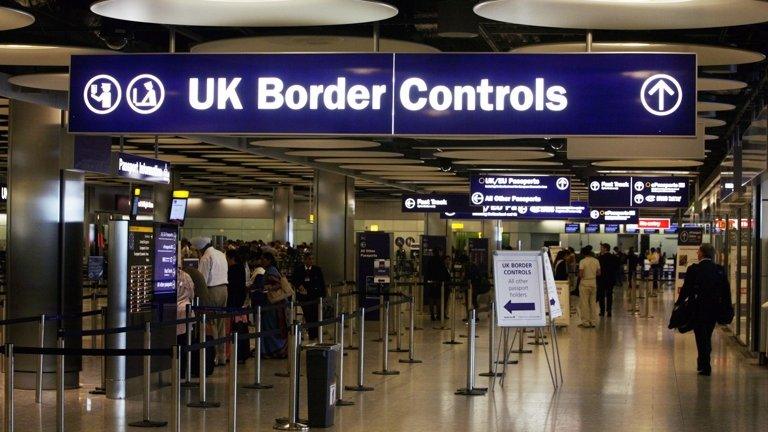
- Published27 November 2013
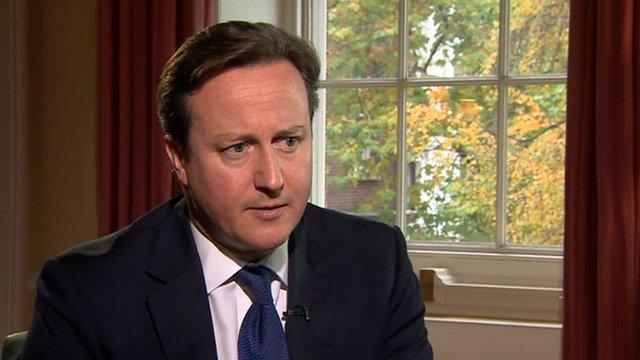
- Published27 November 2013
- Published14 May 2014
